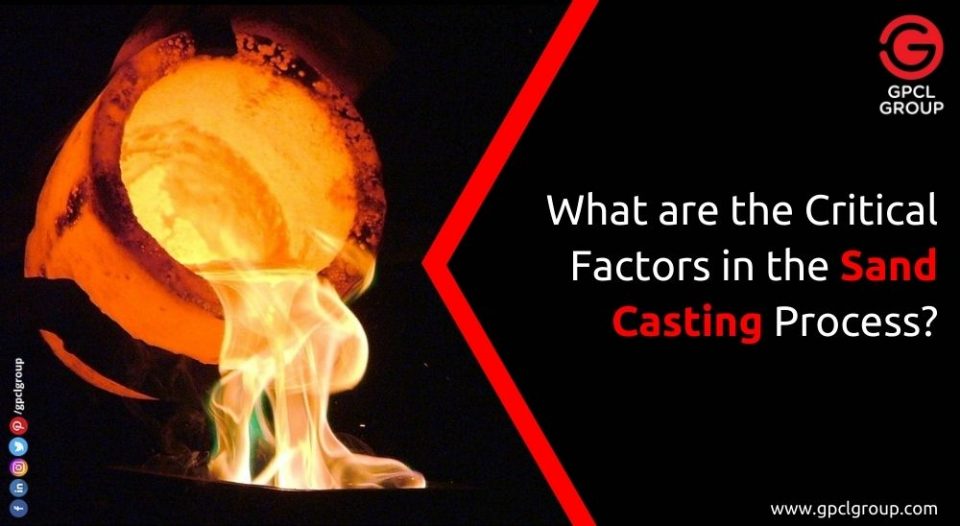In the process of sand casting, the sand is used as a mould material and a wooden or metallic pattern is used. The best part of the Sand Casting method is that it is an economical method as compared to the other available casting methods.
Here in this article, we will have a look at the key factors in the Sand Casting Process that are taken care of by any Sand Casting Company. Some of the major factors affecting the Sand Casting method are as follows:
- Pattern Making
The first and most important factor in Sand Casting Process is the availability of an accurate pattern. The pattern for the casting should be carefully made taking care of all the important aspects like correct dimensions, allowances and ability of easy removal.
The pattern should be designed in a way that when it is removed from the sand mould the mould does not break. Also the dimensions of the pattern should be accurate enough as the final dimensions of the casted product will be dependent on it. The pattern should have the required draft or taper so that it can be easily removed from the mould.
- Different Allowances
The other important factor in the Sand Casting is the consideration of all different allowances like shrinkage allowance and deformation allowance. These allowances should be taken care at the time of pattern making so that they can nullify the effects of phenomena like shrinkage and deformation.
If the allowances are properly taken care, we will be able to get an accurate product after the Sand Casting Process is Complete.
- Mould Making
Another important factor for the Sand Casting is the proper preparation of the mould. It should be assured that the mould is strong enough that it does not break when the pattern is removed. Also it should be assured that the mould formed is handled properly so that it does not break or deform.
Heating or baking of the mould should be done if it is required to provide strength to the mould. Also the lubrication should be used so that it is easy to remove the casted product from the mould after the molten metal gets solidified.
- Metal Pouring
The metal pouring is the next important factor in determining the quality of the casted product by the Sand Casting Process. During the pouring of the metal, it should be made clear that sufficient molten metal is poured that it fills the entire cavity as well as other channels in the mould.
Also the molten metal should be poured in a short time interval so that there is no solidification of any part when the pouring is being done. If the pouring is done in a proper way, there are high chances that the casted product will be defect free and of high quality.
- Cooling
After the metal pouring is done properly, next important step is cooling of the molten metal in the cavity. The cooling should be done properly and with the accurately calculated cooling time. The cooling time is dependent of the mould temperature as well as the wall thickness of the casting.
This time should be accurately estimated and then the cooling is done for this calculated time. Also it should be kept in mind that during the cooling, most of the defects in the casted part occurs due to the shrinkage and deformation process. Hence proper precautions must be taken while designing the pattern so that these defects can be avoided.
- Trimming
Finally, in order to have a high-quality product of accurate dimensions the trimming of the casted part should be done properly. The excess material that has been solidified at the time of solidification should be removed by the trimming process. A manual Trimming or machine trimming can be used to remove the excess parts and to have the final part with the required dimensions.
Also Read: Production Trends of Sand Castings in India
Thus, we have seen the major factors which affect the sand casting process. If you are also involved in some way with the Sand Casting Process or are in a Sand Casting Company, you should take care of the above factors.
